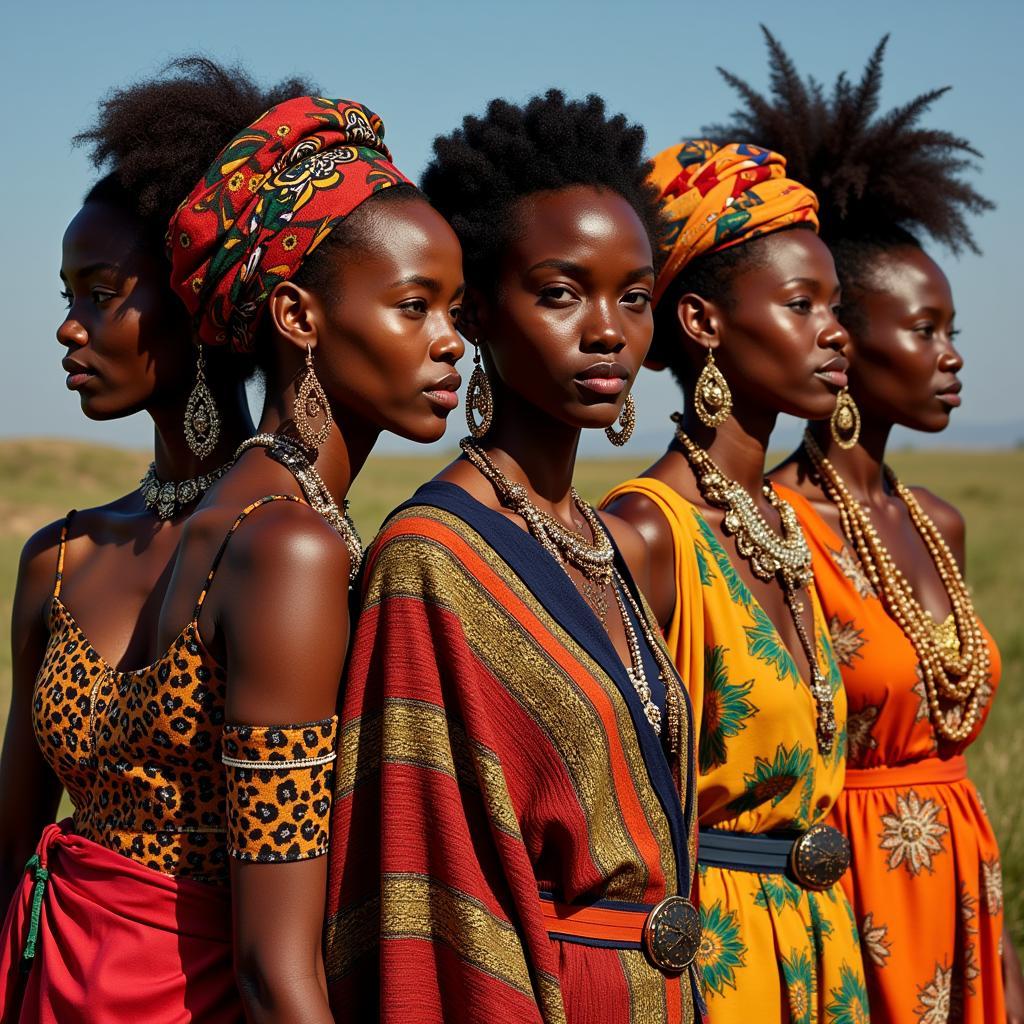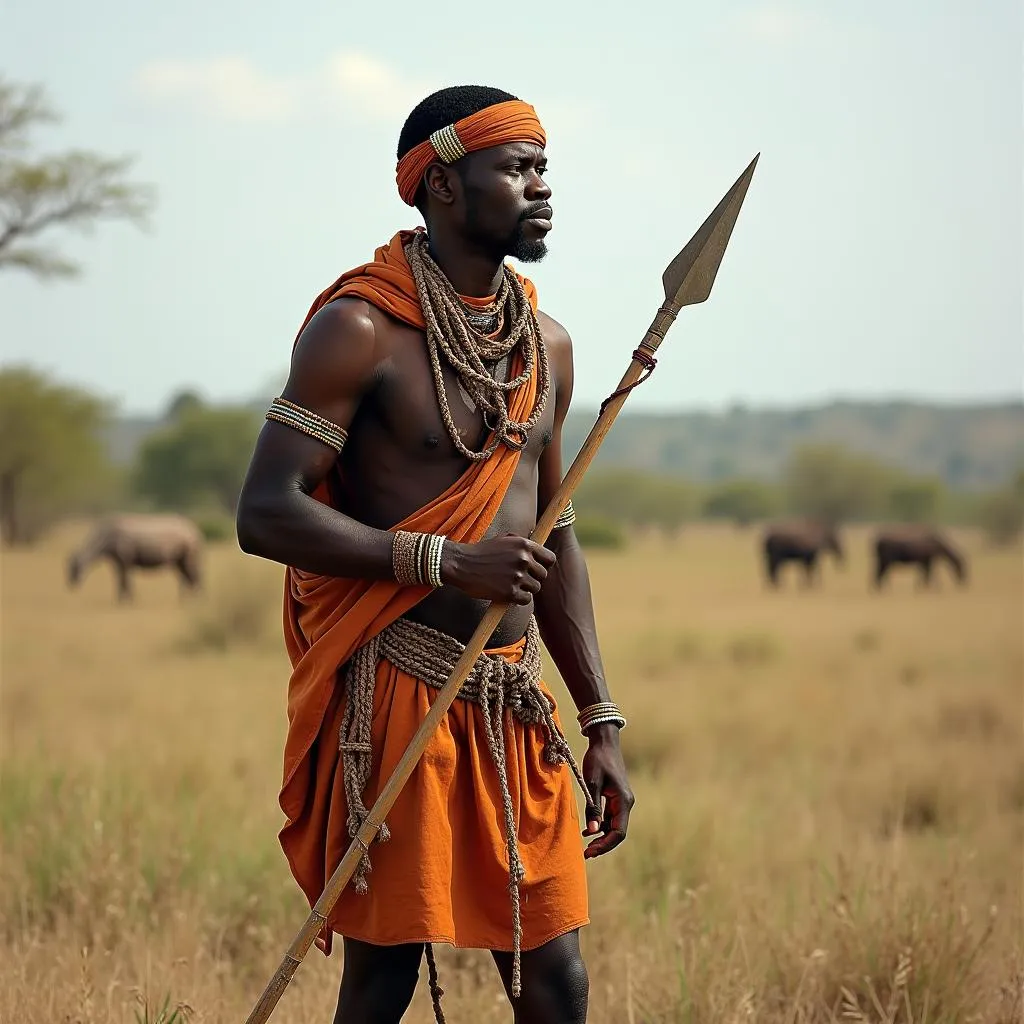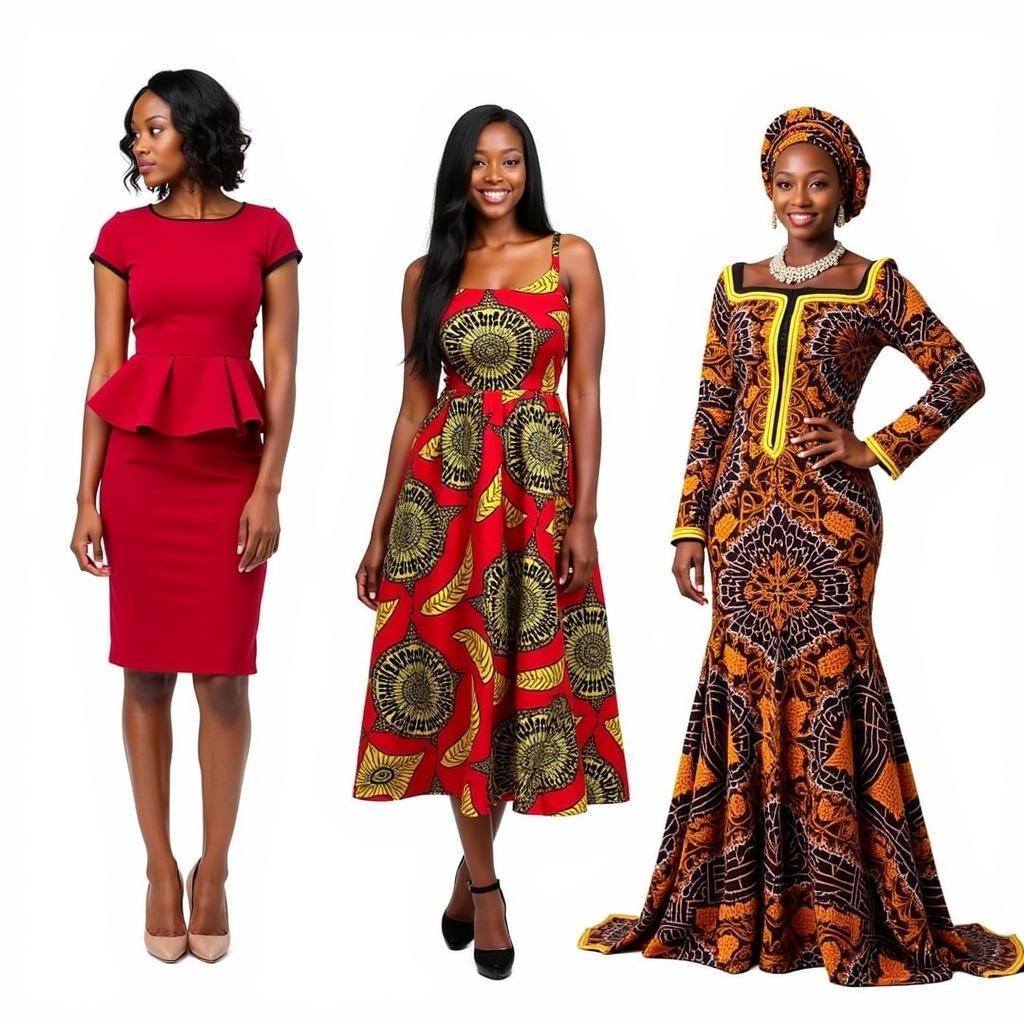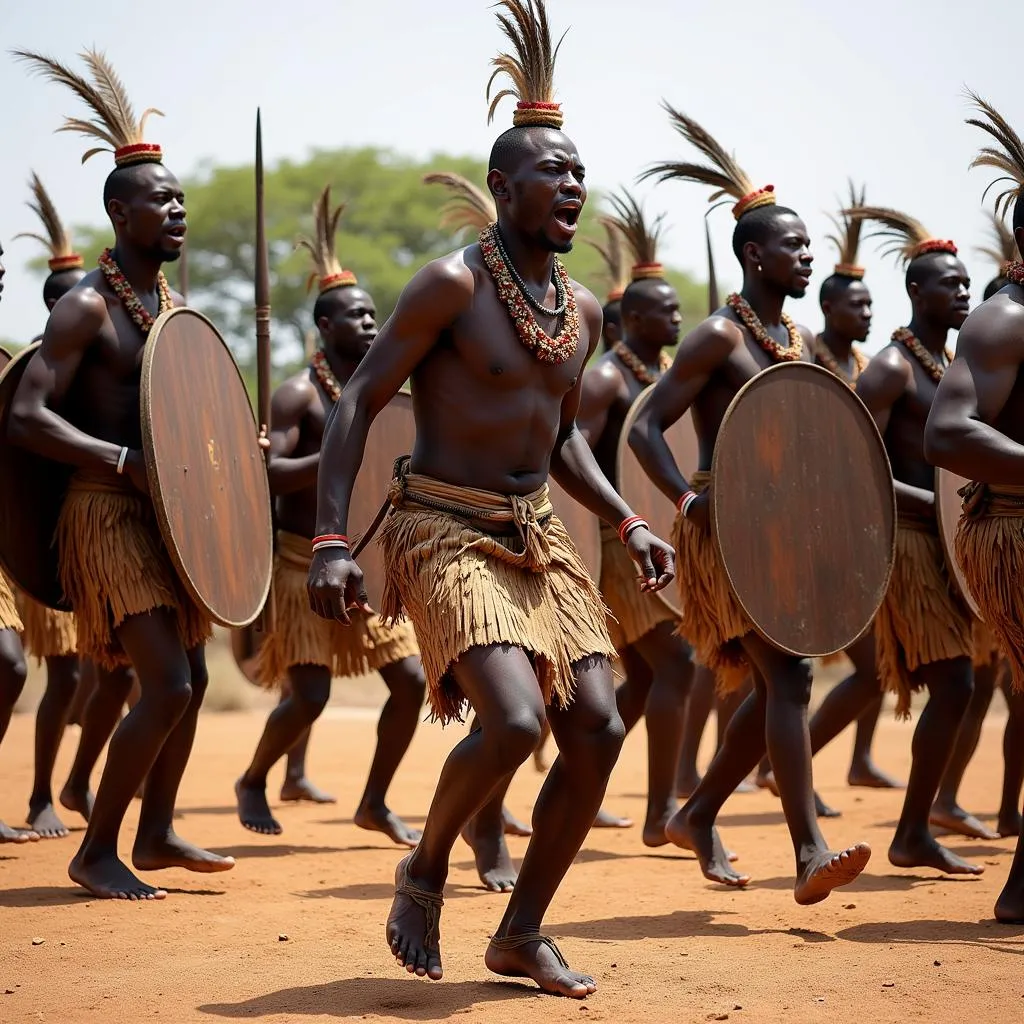African 10 Year Fashion: A Decade of Style Evolution
Over the past decade, African fashion has experienced a phenomenal transformation, evolving from a niche market into a global phenomenon. This surge in popularity is driven by a number of factors, from the rise of social media to a renewed interest in cultural heritage. “African 10 Year Fashion” encapsulates this exciting journey, showcasing the continent’s diverse textile traditions, innovative designs, and unique style narratives.
A Fusion of Tradition and Modernity
One of the most striking aspects of African fashion in the last 10 years is the seamless blend of traditional aesthetics and contemporary influences. Designers are increasingly drawing inspiration from their cultural heritage, reinterpreting ancient patterns, fabrics, and techniques for a modern audience.
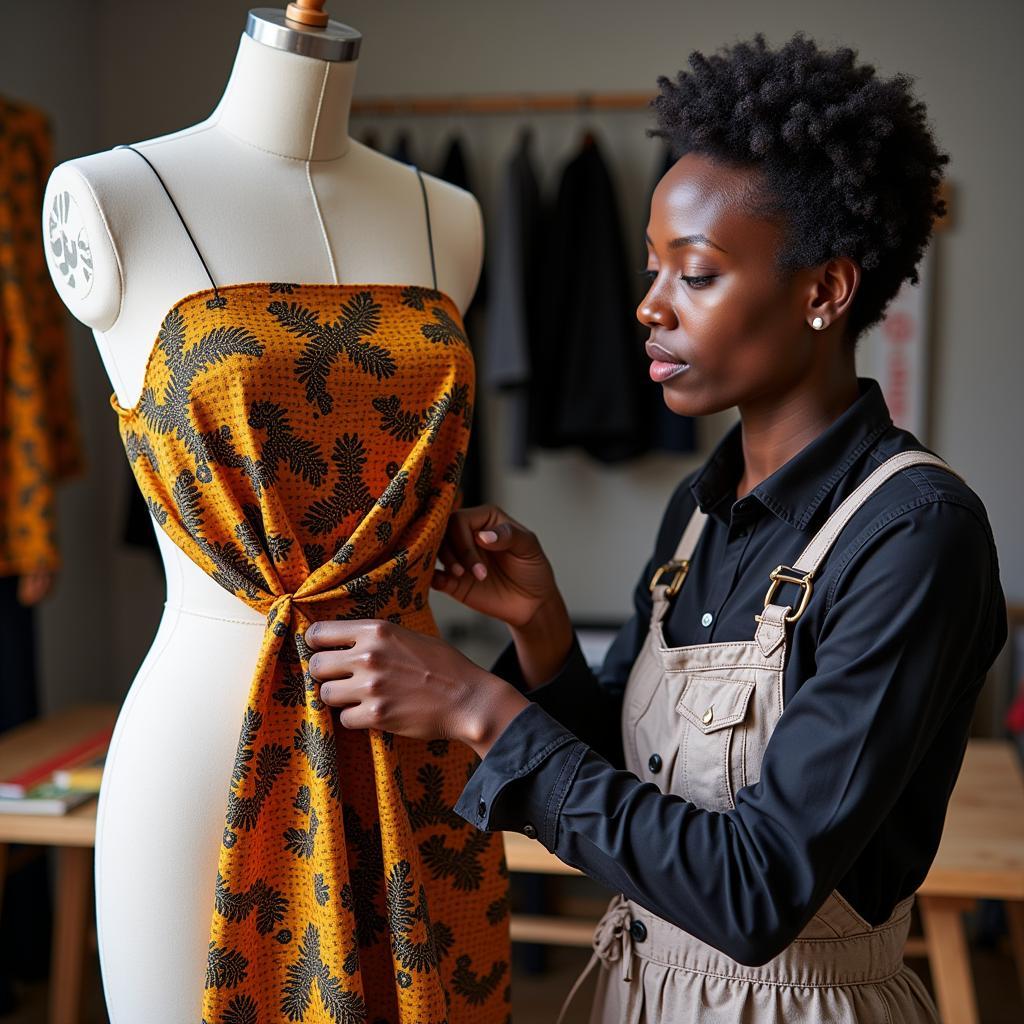 Modern Designs Using Traditional African Textiles
Modern Designs Using Traditional African Textiles
For instance, the use of Ankara, a vibrant wax-resist dyed fabric, has transcended its traditional ceremonial roots to become a staple in contemporary wardrobes. From tailored suits to flowing gowns, Ankara’s bold prints and colors have graced international runways and red carpets. This resurgence of traditional fabrics goes beyond aesthetics; it’s a celebration of cultural identity and a powerful statement of African pride.
The Rise of African Designers on the Global Stage
The past decade has witnessed the meteoric rise of African fashion designers who are capturing global attention with their creativity and innovation. These designers are not only showcasing their collections at prestigious fashion weeks around the world but are also collaborating with major international brands, bringing African fashion to a wider audience.
Names like Maki Oh, Lisa Folawiyo, and Kenneth Ize have become synonymous with contemporary African style, known for their unique design sensibilities and commitment to ethical production practices. These designers are challenging preconceived notions of African fashion, demonstrating its versatility and sophistication on the global stage.
African Street Style: A Tapestry of Individuality
Beyond the runways, African street style has also undergone a significant transformation, becoming a source of inspiration for fashion enthusiasts worldwide. From the bustling streets of Lagos to the vibrant markets of Johannesburg, African cities are teeming with individuals who express their personal style with confidence and flair.
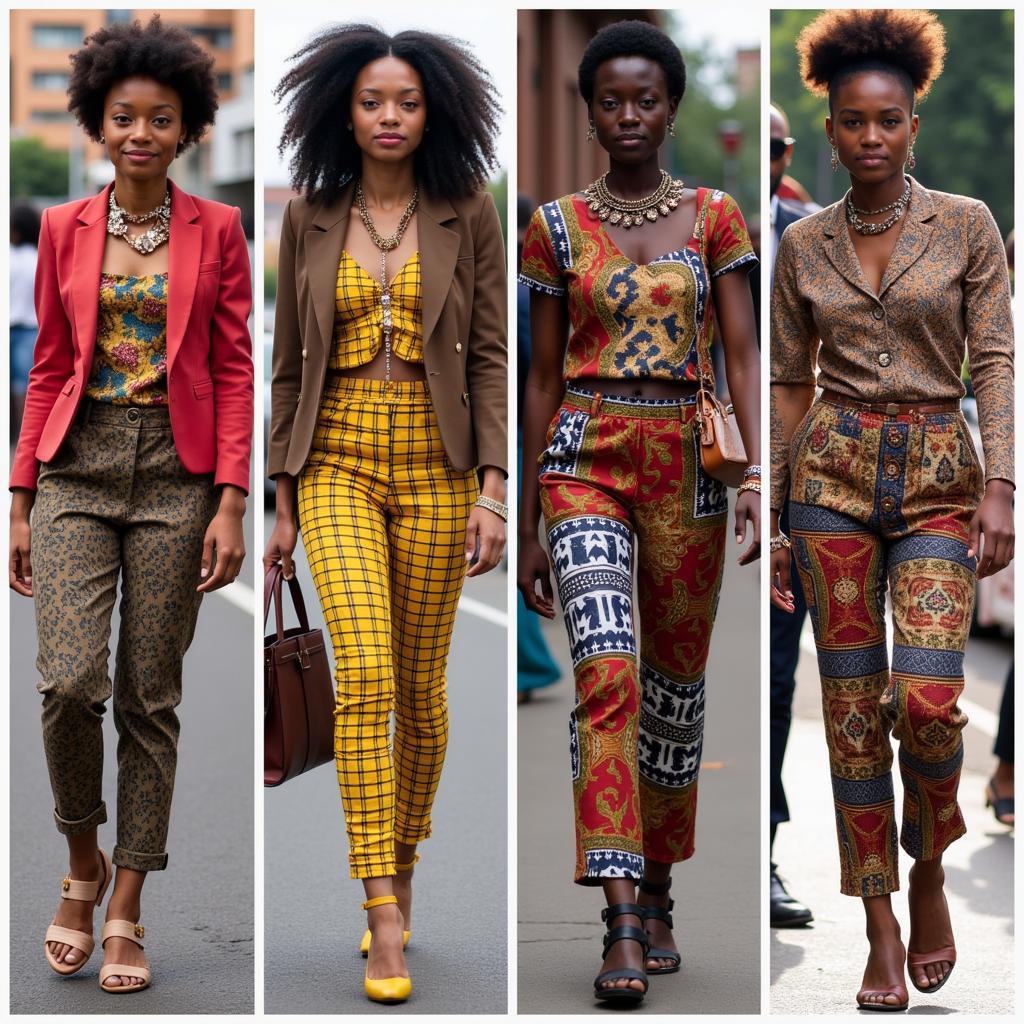 Celebrating Diversity in African Street Style
Celebrating Diversity in African Street Style
African street style is a melting pot of influences, blending traditional garments with contemporary trends, vintage finds, and locally made accessories. It’s a testament to the continent’s rich cultural tapestry and the individual stories that each outfit tells.
The Future of African Fashion: Sustainability and Innovation
As we look ahead to the next decade of African fashion, sustainability and innovation are poised to be key driving forces. Many designers are embracing eco-conscious practices, utilizing locally sourced materials, and promoting fair labor standards. Moreover, the use of technology is transforming the industry, with e-commerce platforms providing greater access to African fashion for consumers worldwide.
The “African 10 year fashion” story is one of resilience, creativity, and a celebration of heritage. It’s a testament to the power of fashion to transcend borders and connect people through shared aesthetics and cultural appreciation. As African fashion continues to evolve, it holds immense potential to influence global trends and redefine the fashion landscape for years to come.
FAQs About African Fashion in the Last Decade
1. What are some of the most popular African fabrics?
Some popular African fabrics include Ankara, Kente cloth, Aso oke, Mud cloth, and Kitenge. Each fabric boasts unique patterns, weaving techniques, and cultural significance.
2. Where can I buy authentic African fashion online?
Numerous online platforms specialize in curating and selling authentic African fashion from a diverse range of designers.
3. How has social media impacted African fashion?
Social media has played a pivotal role in promoting African fashion, connecting designers with a global audience, and fostering a sense of community among fashion enthusiasts.
4. What is the significance of African fashion week?
African Fashion Week, held in various cities globally, provides a platform for African designers to showcase their collections, connect with industry professionals, and gain international recognition.
5. How can I incorporate African fashion into my wardrobe?
Start by incorporating small elements like jewelry, scarves, or bags. You can gradually experiment with bolder pieces like dresses, skirts, or shirts.
Exploring African Cuisine: A Culinary Journey
While we’ve delved into the captivating world of “African 10 year fashion,” it’s essential to remember that the continent’s cultural richness extends far beyond clothing. One area where this vibrancy truly shines is African cuisine. To learn more about the diverse and flavorful dishes that define African culinary traditions, be sure to explore our articles on African delicacies, African food in coimbatore, and African countries food. These articles will take you on a tantalizing journey through the spices, ingredients, and cooking techniques that make African food so unique and delicious.
Discover the Rich Tapestry of African Culture
“African 10 year fashion” offers a fascinating glimpse into the continent’s evolving style landscape, but it’s just one facet of Africa’s rich cultural tapestry. If you’re eager to delve deeper into the heart of African heritage, be sure to check out our other insightful articles on African heritage recipes and African cuisine restaurant. These pieces provide a deeper understanding of the traditions, customs, and flavors that shape the African experience.
We are committed to providing you with insightful and engaging content about African culture and lifestyle. For any assistance, please don’t hesitate to contact us. Our dedicated customer support team is available 24/7 to answer your queries and provide guidance. You can reach us via Phone: +255768904061, Email: kaka.mag@gmail.com or visit us at our office in Mbarali DC Mawindi, Kangaga, Tanzania.
